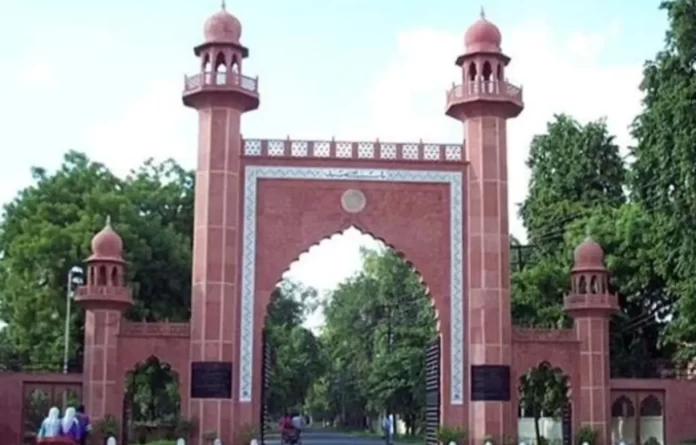The Supreme Court today observed that an educational institute is not barred from enjoying minority status merely because it is regulated by a statute. The top court was hearing a case relating to the minority status of the Aligarh Muslim University.
A seven-judge Constitution Bench of Chief Justice of India DY Chandrachud and Justices Sanjiv Khanna, Surya Kant, JB Pardiwala, Dipankar Datta, Manoj Misra and Satish Chandra Sharma noted that under Article 30 of the Constitution, there need not be absolute administration by a minority group to claim such a status.
CJI DY Chandrachud remarked that as per Article 30, the court does not have to postulate that administration by the minority has to be absolute and in a regulated society they cannot have to think of the same. Therefore, being regulated by a statute does not distract it from having a minority status. He added that if the right of administration is regulated by statute, then there is no bar to minority status and students from all communities can be admitted and not only from one community.
The matter involves concerns regarding the parameters for granting an educational institution minority status under Article 30 and whether a centrally-funded university established by parliamentary statute could be designated as a minority institution. In February 2019, the matter was referred to a seven judge bench headed by then CJI Ranjan Gogoi.
In the 1968 case of S Azeez Basha vs Union of India, AMU was held to be a central university by the Supreme Court. In this case, the top court held that a minority status under Article 29 and 30 of the Indian Constitution cannot be conferred on a Central University. Nonetheless, the minority status of AMU was later reinstated by bringing in an amendment to the AMU Act.
This was further challenged before the Allahabad High Court which set aside the decision as being unconstitutional leading to the instant appeals by AMU before the Supreme Court. In 2016, the Central government withdrew its appeal in the matter.
Today, Solicitor General Tushar Mehta objected to AMU making the matter seem like a reconsideration of the Supreme Court decision in Azeez Basha’s case. To this, Senior Advocate Rajeev Dhavan appearing for AMU, argued that the validity of Azeez Basha judgement has to be looked at in the context of subsequent judgments that may be contradictory.
The Senior Advocate stressed that AMU was a recognised institute of excellence and that the decision in Azeez Basha took a very narrow view of Article 30. He noted that the right to administer a minority institute flowed from the right to establish one. Rajeev Dhavan also underscored that students of all religions can apply and take admission to AMU.
The Senior advocate further mentioned minority educational institutions cannot be allowed to fall below the parameters of excellence and that protection is needed to prevent discrimination against the minority. He concluded that the state has no right to compel minority education institutions to give up their character at all.


